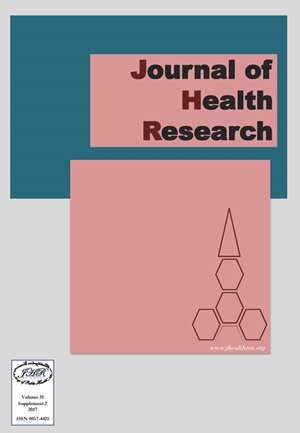The Association between the Perception of Age-Friendly City Features and the Mental Health Status of the Elderly in Photaram District, Ratchaburi Province, Thailand
Keywords:
Age-friendly city, Elderly and mental health, ThailandAbstract
Background: Since the growth of the elderly population has been continuously increasing, the World Health Organization proposed the concept of the age-friendly city in 2007 as a response to the aging society with an aim for healthy lives among the elderly. This study aimed to learn about demographic characteristics and association between the perception of the age-friendly city and the mental health status of the elderly in Photaram district, Ratchaburi province, Thailand.
Methods: A cross-sectional research design was conducted. Respondents were 432 elderly people both male and female, the ages between 60-79 years. The data collection tool was a face-to-face interview questionnaire. The interview questions were divided into three parts: demographic characteristics, the perception toward the age-friendly city, and the mental health status of the elderly. Descriptive statistics were used to analyze general characteristics information; and Chi-square was employed to test association among variables.
Results: The study indicated that the level of the perception toward the age-friendly city was moderate level in all components, which was also true for the mental health status. For the association, it was found that the level of education, income, and chronic diseases were associated with the mental health status of the elderly. The statistical significance was (p < 0.05). The perception toward the age-friendly city in all components was associated with the mental health status of the elderly with a statistical significance of (p < 0.05). Other statistically significant findings were: outdoor space and building (p=0.014), transportation (p=0.05), housing (p=0.012), social participation (p=0.008), respect and social inclusion (p=0.008), civil participation and employment (p= 0.030), communication and information (p=0.002), as well as community support and health service (p=0.015).
Conclusion: The results of this study could help in planning for the development of an age-friendly city in the future in Photaram district, Ratchaburi province, Thailand.







